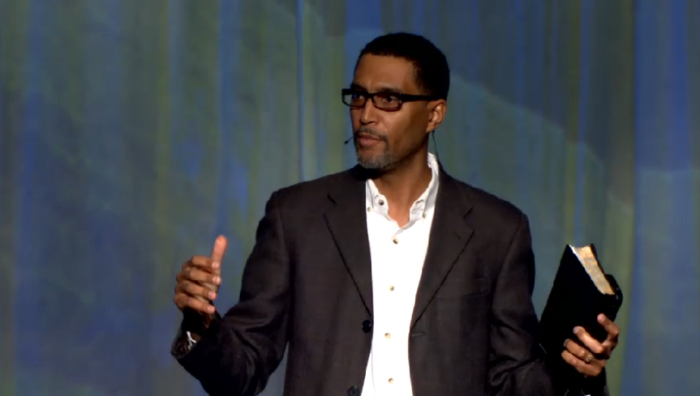Black Pastor Explains Why He Decided to Become a Leader in a White Church

A black pastor who dared to be different by challenging racially stereotypical church models to become a leader in a white church in Louisville, Kentucky, explained at The Ethics & Religious Liberty Commission of the Southern Baptist Convention's leadership summit Friday that he did it in pursuit of the unity of the faith.
Kevin Smith, assistant professor of preaching at The Southern Baptist Theological Seminary and who is also teaching pastor at Highview Baptist Church in Louisville, explained at the summit themed, "The Gospel and Racial Reconciliation," that becoming a pastor in the predominantly white church was something he had to challenge himself to achieve and maintain because of the cultural differences between the white church culture he transitioned into and the black church culture in which he was raised.
"Blackness can be weighted and graded in a way that whiteness just isn't. You got the look, you got the look," he said of being white at the summit held in Nashville, Tennessee. "A matter of fact, it's so superficial at the look level that throughout American history, some people from other ethnicities have been able to pass. So it's not really about content it's just about the look."
"But blackness is judged on a few different things. Ideology, philosophy, solidarity, things like that, that are more than just the look. So you often get questions like, why in the world would you want to pastor in a white congregation?" said Smith.
"When I was making the transition, I had good well-intentioned godly brothers I love right now and I really value their input and they helped me in the decision-making process with more theological and biblical kind of questions," he explained.
Even these godly brothers couldn't understand why he was doing it. They said: "Hey brother, the black church needs strong expository preachers. You are an expositor… you need to be in the black church," he added.
His motivation, explains Smith, was to step out of his comfort zone. He was also driven by his understanding of biblical Scripture preaching oneness and unity and his personal exposure to multiple ethnic and racial groups.
"You will respond to me differently when we are sitting across from one another versus when we are on Twitter or Facebook. I was motivated by Jesus' prayer, Paul's command that we endeavor to keep the unity of the spirit," he said of his decision.
"Why Highview? We, I thought we needed some models in Southern Baptist life that are different than some of our previous models," he said. "I wanted a model other than our church planting model and also I wanted a model [answering the question] what does it look like when people of other ethnicities submit to black leadership?"
"If you search the library, you can find books on the black pastor, the black preacher. Historically, black pastor, the black preacher has been something within the black community, than the white preacher has been in the white community," Smith explained.
"There ain't no books called the white preacher 'cause in a very real way the church was the only thing the black community had after emancipation. Not political power, not economic power, or not other things. In a real way the black preacher in a black setting, especially up until recent decades has been like 'The Man,'" he continued.
In the white church he explained the preacher's role and many other things are culturally different. One of the biggest challenges for multiethnic churches, he explained is simply the "hard language of worship."
"The churches I come from when the preacher is preaching the word and you agree with the word folks are like 'glory!', folks are like 'hallelujah!', folks are like moving. When Highview is shouting, this is what white folks do," he said motioning a hand clap as the audience laughed. "When brothers come I say look man the clap is the shout."
"I just love the magical moment of preaching the Gospel, exalting the Lord Jesus Christ and having some old white lady come up and say I grew up in a racist family, I grew up with all kinds of crazy thoughts, I've been to some wrong places but that Gospel is so good. You're my brother," he added.
"So why would a black pastor, pastor a white church? I'm only 47, 48, but I want to die trying to do what Jesus called us to do. You know, obeying the Scripture rather than die being comfortable…" he ended.



























